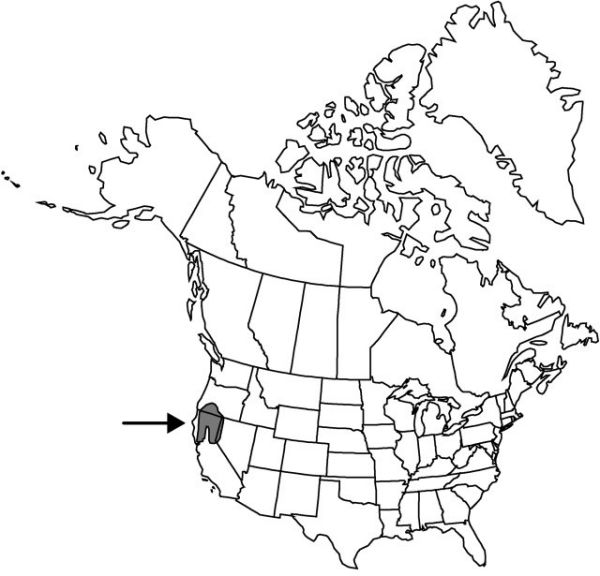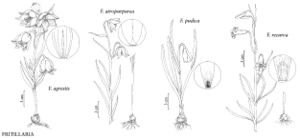Fritillaria recurva
Pl. Hartw., 340. 1857.
Bulb scales: large 6; small 20–30. Stem 3–9 dm. Leaves in 1–3 whorls of 2–5 leaves per node proximally, alternate distally, 3–15 cm; blade linear to narrowly lanceolate. Flowers nodding; perianth slender; tepals scarlet, checkered with yellow adaxially and purple abaxially, 1.5–3.7 cm, apex usually strongly recurved; nectaries yellow, narrowly lanceolate, 1/4 tepal length or less; style obviously branched for 1/4–1/2 its length, branches ± erect, longer than 1.5 mm. Capsules winged. 2n = 24, 36.
Phenology: Flowering Mar–Jun.
Habitat: Dry hillsides in shrubland or woodlands
Elevation: 300–2200 m
Distribution

Calif., Nev., Oreg.
Discussion
Variety coccinea has been recognized by a number of authors, but examination of numerous specimens indicates no consistent distinction. In some cases, different plants from the same population appear to align with different varieties.
The Shasta and Yana tribes used Fritillaria recurva bulbs as food.
Selected References
None.
